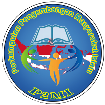DAMPAK PENINGKATAN USIA HARAPAN HIDUP PENDUDUK INDONESIA TERHADAP STRUKTUR DEMOGRAFI DAN PERAWATAN LANJUT USIA
(1) IAIN Syekh Nurjati Cirebon
(*) Corresponding Author
Abstract
ABSTRAK
Â
Perbaikan tingkat kesejahteraan masyarakat dan kemajuan dalam bidang kedokteran telah menjadikan usia harapan hidup penduduk semakin panjang, dampak langsungnya adalah peningkatan jumlah penduduk lanjut usia dan kebutuhan akan pola perawatan lansia. permasalahan semakin kompleks ketika terjadi pergeseran model keluarga dari keluarga luas menjadi keluarga inti. menghadapi tantangan tersebut para peneliti dan penggiat sosial kemasyarakatan harus dapat menemukan alternatif kebijakan yang dapat dilaksanakan pada akar rumput. sehingga konsep lansia tetap aktif dan produktif tetap menjadi keniscayaan untuk dilakukan.
Kata kunci: usia harapan hidup, lansia, aktif dan produktif
Â
ABSTRACT
The improvement in the level of community welfare and advances in the field of medicine has made the increasing of population life expectancy at birth (eo) is longer, the direct impact of that shifting is an increase in the number of elderly people and the need for the elderly care pattern or model. The problem is more critical when there is a shift in the family model from an extended family to a nuclear family. Envisage these challenges, researchers and community social activists must be able to find alternative policies that can be implemented at the grassroots spheres. so that the concept of the elderly remaining active and productive remains a necessity to carried out.
key word: life expectancy, elderly, active and productive
Full Text:
PDFReferences
BPS. 1999. Profil Penduduk Lanjut Usia 1997. Jakarta: Badan Pusat Statistik.
____. 1997. Laporan Sosial Indonesia 1997. Jakarta: Badan Pusat Statistik.
____. 2015. Proyeksi Penduduk Indonesia 2010-2035. Jakarta: Badan Pusat Statistik.
____. 2018. Statistik Penduduk Lanjut Usia 2017. Jakarta: Badan Pusat Statistik.
Djohan, Eniarti. 1996. “Lansia di Jepang: Aspek Demografis dan Sosiologisâ€. Buletin Pengkajian Masalah Kependudukan, VII (1 & 2), pp. 63-81 Jakarta: LIPI.
Garna, Judistira K. 1996. Sistem Budaya Indonesia. Program Pascasarjana Unpad Bandung.
Iecovich, Esther. 2014. Aging in place: From theory to practice. Anthropological Notebooks 20 (1): 21–33. ISSN 1408-032X © Slovene Anthropological Society. https://pdfs.semanticscholar.org/f9fc/8e6e859408543cb512a499d37a4267edb348.pdf
Infodatin Kemenkes RI. 2016. Situasi Lanjut Usia (Lansia) di Indonesia. ISSN: 2442-7659
Kantor Menteri Negara Kependudukan/BKKBN. 1998. Data dan Informasi Penduduk Lansia Indonesia.
Novak, Mark. 1997. Aging & Society; A Canadian Perspective. Ontario: ITP Nelson.
Ogawa, Naohiro. 1989. “Population Change and Welfare of the Agedâ€. Nupri Reprint Series No. 32/1989, pp. 105-132.
Ogawa, Naohiro, et al. 1994. “Health Status of the Elderly and Their Labour Force Participation in the Developing
Countries along the Asia-Pasific Rimâ€. Nupri Reprint Series No. 51/1994, pp. 348-373.
Rosidi, Ajip. 1984. “Ciri-ciri Manusia Dan Kebudayaan Sundaâ€. Masyarakat Sunda dan Kebudayaannya, Edi Suhardi Ekadjati, (ed), hal. 125-161. Jakarta: Girimukti Pasaka.
Suryadi. 2017. Aktivitas Lansia (Kasus Pada Suku Sunda Di Kelurahan Sekeloa Kecamatan Coblong Kota Bandung). Ponorogo: Wade Group.
Tjiptoherijanto, Prijono. 1990. Transisi Demografi dan Pembangunan Di Indonesia. Disampaikan dalam Forum Geografi Nomor 06.
http://journals.ums.ac.id/index.php/fg/article/download/4856/3245
Wirakartakusumah, M. D. 1998. “Household Structure and the Elderly in Indonesiaâ€, Asian Population Studies Series No. 152.
DOI: 10.24235/empower.v3i2.3515
Article Metrics
Abstract view : 269 timesPDF - 146 times
Refbacks
- There are currently no refbacks.
Copyright (c) 2026 Empower : Jurnal Pengembangan Masyarakat Islam

This work is licensed under a Creative Commons Attribution 4.0 International License.
 Empower : Jurnal Pengembangan Masyarakat Islam
Empower : Jurnal Pengembangan Masyarakat Islam















